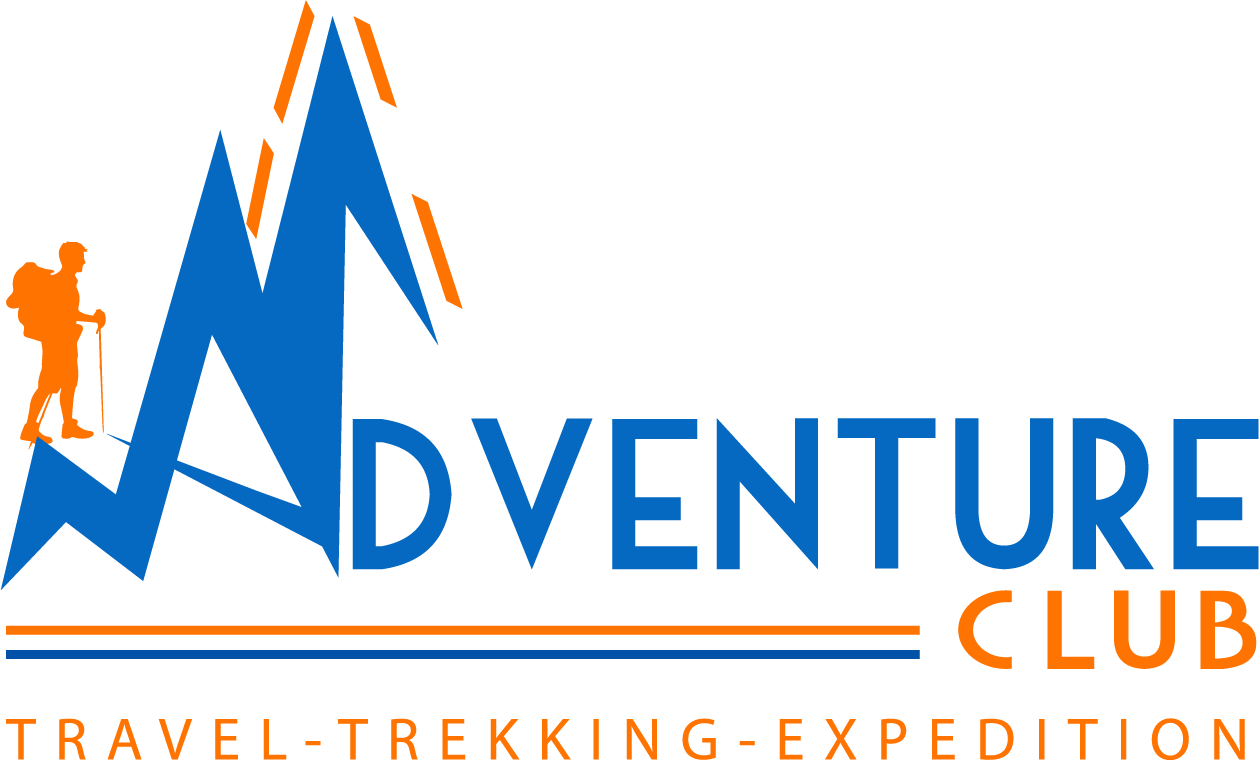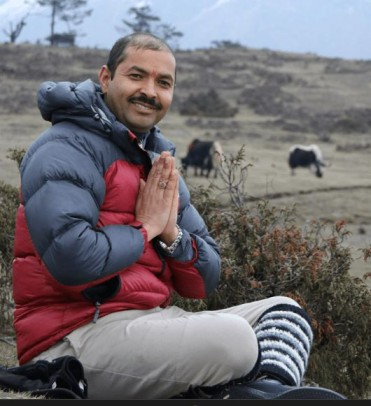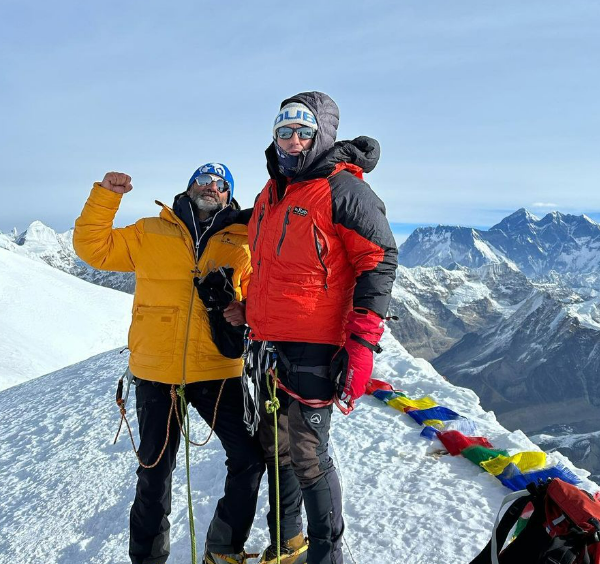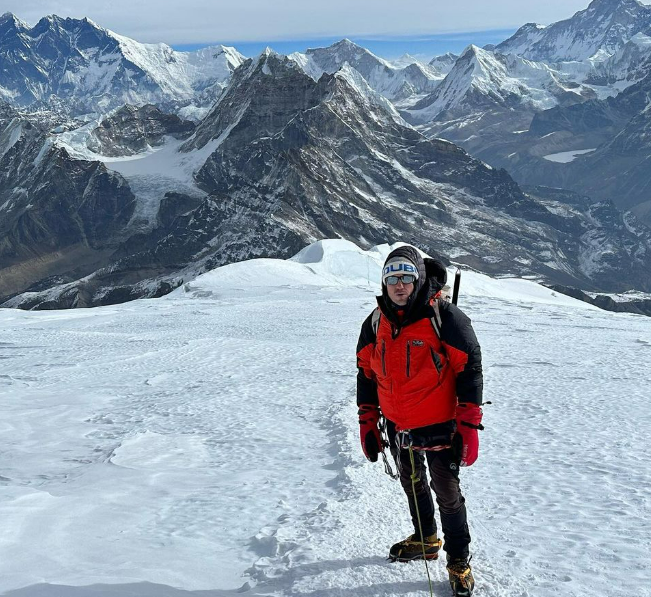At a Glance
Overview
Mera Peak is one of the most popular trekking peaks in Nepal, standing tall at an elevation of 6,476 meters. The peak is located in the Khumbu region, which is also the home to Mount Everest, making it an excellent choice for those seeking a less crowded but equally challenging trekking and climbing experience.
Mera Peak climbing expedition is suitable for those with some previous trekking and climbing experience. The climb is considered technically straightforward but physically demanding, requiring endurance, good physical fitness, and excellent acclimatization skills. The climb offers stunning views of the Himalayan range, including Mt. Everest, Mt. Lhotse, Mt. Makalu, and many others.
The expedition starts with a scenic flight from Kathmandu to Lukla, followed by a trek through beautiful Sherpa villages, dense forests, and high-altitude passes. The trek offers a unique opportunity to explore the culture and lifestyle of the Sherpa people, who have been living in the region for generations.
After reaching Mera Peak Base Camp, the climbing team will undergo an intensive training program to prepare for the climb. The climb starts early in the morning, and the team will ascend the peak in two or three high-altitude camps, depending on the itinerary. The final climb to the summit is a challenging one, but the reward is the breathtaking panoramic view of the Himalayan range. The descent follows the same route, allowing the climbers to enjoy the beautiful scenery and experience the warm hospitality of the Sherpa people once again. The expedition ends in Lukla, where the team will take a flight back to Kathmandu.
Important Note:
The Mera Peak climbing expedition is a physically demanding and technically challenging adventure that requires good physical fitness, endurance, and excellent acclimatization skills. Climbers should have some prior experience with high-altitude trekking and climbing. The climb involves risks, and climbers should be aware of the potential dangers associated with high-altitude climbing.
Climbers are required to carry appropriate gear and equipment, including warm clothing, climbing boots, crampons, ice axes, and harnesses. It is recommended that climbers hire a professional guide or join an organized expedition to ensure their safety and maximize their chances of success.
Altitude sickness is a common concern for climbers, and climbers should be aware of the symptoms and take necessary precautions to prevent them. Adequate rest, proper hydration, and slow ascent are some of the measures that can help prevent altitude sickness.
Climbers should also be aware of the potential environmental impact of their climb and should take necessary measures to minimize their impact on the environment. This includes proper waste disposal and following Leave No Trace principles.
Itinerary
Day 1
Upon your arrival at Tribhuvan International Airport in Kathmandu, you will be greeted by our representative who will transfer you to your hotel. After settling in, you can explore the vibrant city of Kathmandu and immerse yourself in its rich cultural heritage. You can visit the famous Durbar Square, which is home to several historic temples and palaces, or explore the bustling streets of Thamel, which offer a range of shops, restaurants, and bars.
In the evening, you will have a pre-trek briefing with your climbing guide, who will provide you with a detailed itinerary and answer any questions you may have about the expedition. Overnight stay in Kathmandu.
Day 2
After breakfast, we will start our Kathmandu city tour, which includes visits to some of the most famous cultural and historical sites in the city.
Our first stop will be Swayambhunath Stupa, also known as the Monkey Temple, which is one of the most sacred Buddhist sites in Nepal. Located on a hilltop, the stupa offers stunning views of the city and is home to several shrines, statues, and prayer wheels.
Next, we will visit Patan Durbar Square, which is a UNESCO World Heritage Site and home to several ancient temples, palaces, and courtyards. Patan Durbar Square is renowned for its Newari architecture and is a testament to the rich cultural heritage of the Kathmandu Valley.
We will then proceed to Pashupatinath Temple, which is one of the most important Hindu temples in the world and a UNESCO World Heritage Site. The temple is dedicated to Lord Shiva and attracts thousands of pilgrims every year.
Our final stop will be Baudhanath Stupa, which is one of the largest stupas in the world and a UNESCO World Heritage Site. The stupa is a sacred site for Buddhists and is surrounded by several monasteries and shops selling Tibetan artifacts.
After the tour, we will return to our hotel in Kathmandu and prepare for the next day's journey to Lukla. Overnight stay in Kathmandu.
Day 3
We will start the day early and head to the airport for our flight to Lukla, which is a small mountain town located at an altitude of 2,860 meters. The flight takes about 35 minutes and offers stunning views of the Himalayas.
Upon landing in Lukla, we will meet our trekking crew and begin our trek to Chutanga. The trail starts with a descent towards the Dudh Koshi River and takes us through several small villages and farms.
We will then start ascending toward Chutanga, which is located at an altitude of 3,100 meters. The trek is challenging and takes about 4 to 5 hours, but the stunning views of the Himalayan peaks make it worth the effort. We will also pass through dense forests of rhododendron and oak trees, which are home to a variety of wildlife.
Once we reach Chutanga, we will set up our campsite and rest for the night. Chutanga is a small village with basic facilities, and we will have a chance to interact with the locals and learn about their way of life. Overnight stay in Chutanga.
Day 4
We will wake up early and have breakfast before starting our trek towards Thuli Kharka via Zatrwa La. The trail starts with a steep ascent towards Zatrwa La, which is located at an altitude of 4,600 meters. The climb is challenging and requires a good level of fitness, but the views of the surrounding mountains make it worth the effort. Once we reach the top of the pass, we will be rewarded with stunning panoramic views of the Himalayas, including Everest, Lhotse, Nuptse, and Makalu.
We will then start descending towards Thuli Kharka, which is located at an altitude of 4,300 meters. The trail takes us through beautiful alpine forests and pastures, and we will pass by several yak herders' huts and grazing grounds. Once we reach Thuli Kharka, we will set up our campsite and rest for the night. Thuli Kharka is a remote village with basic facilities, and we will have a chance to interact with the locals and learn about their way of life. Overnight stay in Thuli Kharka.
Day 5
After breakfast, we will begin our trek toward Kothe, which is located at an altitude of 3,691 meters. The trail takes us through beautiful forests of rhododendron and pine trees, and we will pass by several small streams and waterfalls.
We will also have the opportunity to spot various species of birds and wildlife, including musk deer, Himalayan thar, and wild boar. The trek is moderately challenging and takes about 6 to 7 hours to complete.
Once we reach Kothe, we will set up our campsite and rest for the night. Kothe is a small village with basic facilities, and we will have a chance to interact with the locals and learn about their way of life. Overnight stay in Kothe.
Day 6
After breakfast, we will continue our trek towards Thaknak, which is located at an altitude of 4,358 meters. The trail takes us through dense forests of rhododendron and juniper trees, and we will pass by several small streams and waterfalls.
The trek is relatively short and takes about 3 to 4 hours to complete, but it is also challenging due to the high altitude. As we gain altitude, we will notice a significant change in the landscape, with the forests giving way to rocky terrain and snow-capped mountains.
Once we reach Thaknak, we will set up our campsite and rest for the night. Thaknak is a small village with basic facilities, and we will have a chance to acclimatize to the high altitude and prepare for the next day's trek. Overnight stay in Thaknak.
Day 7
After breakfast, we will continue our trek toward Khare, which is located at an altitude of 5,045 meters. The trail takes us through rocky terrain, and we will pass by several glacial moraines and icy streams.
As we approach Khare, we will be greeted by stunning views of Mera Peak and the surrounding mountains. The trek is relatively short and takes about 3 to 4 hours to complete, but it is also challenging due to the high altitude.
Once we reach Khare, we will set up our campsite and rest for the night. Khare is the last settlement on the trek, and we will have a chance to acclimatize to the high altitude and prepare for the next day's climb. Overnight stay in Khare.
Day 8
Today is an acclimatization day in Khare, which is essential to prepare our bodies for the climb to Mera Peak. We will spend the day resting and exploring the surrounding areas, taking short walks to higher elevations to aid in acclimatization.
In the afternoon, our experienced climbing guides will provide us with pre-climb training, including the use of climbing equipment such as ice axes, ropes, and crampons. They will also demonstrate techniques for climbing on snow and ice and provide us with safety tips for the climb.
We will have plenty of time to ask questions and clarify any doubts we may have about the climb. This training is crucial to ensure that we are well-prepared and confident for the climb ahead. Overnight stay in Khare.
Day 9
After breakfast, we will continue our trek towards Mera High Camp, which is located at an altitude of 5,780 meters. The trail takes us through steep and challenging terrain, and we will pass by the Mera Glacier and the Mera La pass.
As we climb higher, the air becomes thinner, and we will need to pace ourselves and take regular breaks to acclimatize to the high altitude. The trek takes about 5 to 6 hours to complete, and we will be rewarded with spectacular views of the Himalayan range.
Once we reach Mera High Camp, we will set up our campsite and rest for the night. This will be our base camp for the climb to Mera Peak, and we will have a chance to rest and prepare for the climb. Overnight stay in Mera High Camp.
Day 10
Today is the most challenging and exciting day of the trek as we make our way to the summit of Mera Peak, which stands at 6,461 meters. We will wake up early in the morning and have a quick breakfast before starting the climb.
Our experienced climbing guides will lead us through the steep and challenging terrain, using their expertise to ensure that we are safe and comfortable throughout the climb. As we ascend higher, the air becomes thinner, and we will need to pace ourselves and take regular breaks to acclimatize to the high altitude.
We will climb over a glacier and cross a crevasse to reach the summit ridge, which is a narrow and exposed ridge that leads to the peak. The views from the summit are breathtaking, and we will have a panoramic view of the Himalayan range.
After spending some time on the summit, we will start our descent to Khare, which will take about 7 to 8 hours. We will retrace our steps through the steep and challenging terrain, taking care to descend safely. Once we reach Khare, we will celebrate our achievements and rest for the night. Overnight stay in Khare.
Day 11
This day is set aside as a contingency day for the Mera Peak summit. In case we are unable to summit the peak due to bad weather or any other unforeseen circumstances, we will use this day to make another attempt.
Alternatively, if we have already summited the peak on the previous day, we can use this day to rest and recover, or we can use it to explore the beautiful surroundings of Khare.
We will have the option to hike to nearby viewpoints, visit the local monasteries and learn about the local culture, or simply relax and enjoy the stunning mountain views. Overnight stay in Khare.
Day 12
Today, we will start our descent back to Thuli Kharka. We will follow the same trail that we took on our way up, passing through Kothe and enjoying the beautiful scenery along the way.
The trek from Khare to Kothe will take around 4 to 5 hours, and we will stop for lunch in Kothe. After lunch, we will continue our descent to Thuli Kharka, which will take another 3 to 4 hours.
We will spend the night in Thuli Kharka, enjoying the fresh mountain air and stunning views of the surrounding peaks. Overnight stay in Thuli Kharka.
Day 13
Today, we will continue our descent and make our way toward Lukla. We will trek through the Zatrwa La Pass, which is located at an altitude of 4,600m/15,088ft, and offers breathtaking views of the surrounding peaks.
The trek from Thuli Kharka to Zatrwa La Pass will take around 3 to 4 hours, and we will stop for lunch at the pass. After lunch, we will begin our descent toward Lukla, which will take another 2 to 3 hours.
We will reach Lukla by late afternoon, and this will be our last night on the trek. We will have a farewell dinner with our trekking team and celebrate the successful completion of our adventure. Overnight stay in Lukla.
Day 14
Today, we will take an early morning flight from Lukla back to Kathmandu. The flight will take around 35 minutes, and we will get stunning views of the Himalayas one last time as we fly back to the capital city.
Once we arrive in Kathmandu, we will transfer to our hotel and have some free time to rest or explore the city on our own. In the evening, we will have a farewell dinner with our trekking team and share our experiences from the trip.
Overnight stay in Kathmandu.
Day 15
Today is the last day of our Mera Peak climbing adventure, Depending on your flight schedule, you may have some free time in the morning to explore the city or do some last-minute souvenir shopping.
Our representative will transfer you to the airport in time for your flight back home. We hope you had an amazing experience climbing Mera Peak and exploring the beautiful landscapes of Nepal. Safe travels!
Faqs
The best time to climb Mera Peak is during the spring (March to May) and autumn (September to November) seasons when the weather is stable, and the skies are clear.
Although prior climbing experience is not required, it is recommended that you have some experience trekking at high altitudes and have a good level of fitness. You will also receive pre-climbing training from our experienced guides before the climb.
During the trek, you will stay in tea houses or lodges, which provide basic facilities such as clean rooms, blankets, and shared bathrooms. However, in Kathmandu, You will have three-star accommodation and probably will stay in Hotel Samsara or the same as in others.
During the trek, you will be provided with a variety of meals including Nepali, Tibetan, and Western cuisine. We ensure that the food is hygienic and nutritious to keep you energized during the climb.
Yes, you will need to bring some specialized climbing gear such as climbing boots, crampons, and an ice axe. We will provide you with a complete list of necessary equipment before the climb.
Yes, we can customize the itinerary according to your preferences and requirements. Please feel free to contact us for more information.
Yes, travel insurance is mandatory to cover any unforeseen circumstances such as accidents, illness, or emergency evacuations during the trek. Please make sure to purchase travel insurance before the trip.
Exclusion
- Lunch and dinner during your stay in Kathmandu.
- Personal expenses (Laundry, telephone calls, sweets, snacks, battery chargingetc.)
- All kind of beverages ( tea/coffee, coke, beer, bottled water, etc.)
- Travel Insurance (it is mandatory).
- Personal trekking equipment except stated above.
- Tipping to guide/porter.
- Any loss arising due to unforseen circumstances that is beyond Adventure Club Pvt Ltd control.






